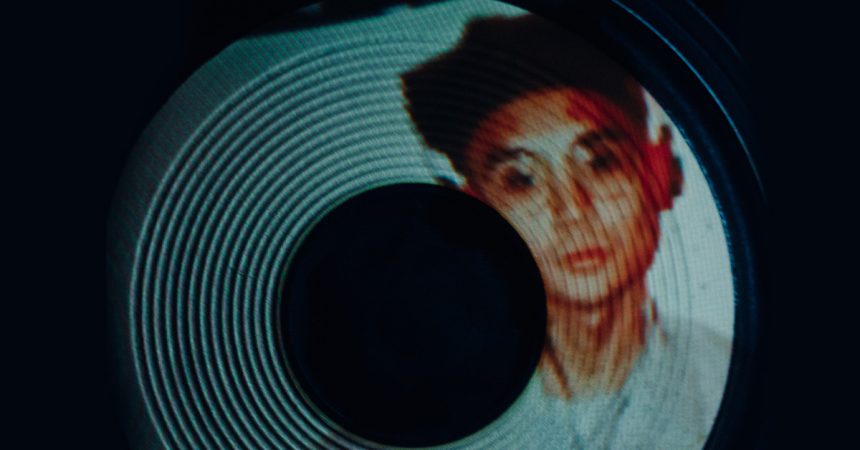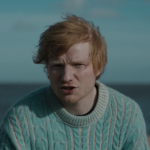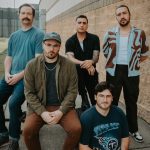Yeek appears in our Fall 2023 Issue with cover stars Scowl, Yves Tumor, Poppy, and Good Charlotte. Head to the AP Shop to grab a copy.
Life was captured on tape far before Yeek ever made music. Throughout his childhood, from ages 9-15, the left-field pop purveyor documented his own coming of age with a Sony cassette recorder. There are tapes where he’s pretending to be a radio broadcaster. On others, he’s parodying MTV Cribs and Pimp My Ride. It wasn’t until he started listening back to them, however, that he realized they contained fragments of who he was going to become.
At 32, Yeek has his own radio show on NTS. His music videos, on the other hand, are sharp and eccentric, employing the high-scale production of a TV show. The tapes inspired him, pointing to who he’s been all along. That’s why Future Reference, the latest album from Yeek, clicks to life with his voice. “This is for you to use at a later time. Hope this helps,” he says softly before the record swings into the jubilant beat of “Before I Go.” These interludes, which surface like shots of clarity as he suggests therapy and chasing happiness, even if it doesn’t work out, are odes to the notes he left himself all those years ago.
Read more: 25 best albums of 2023 so far
While Yeek could’ve used the original tapes as skits — he still has the OG recorder, though it’s busted — the move felt too personal. Rather, he’s dead set on establishing a boundary. “I think I’ve always seen vulnerability as a heroic thing, but then at the same time, sometimes it ends up hurting you, and you gotta look out for yourself,” Yeek shares from his home in Pasadena, where he’s lived for the past three years. In a sense, the album is his own memory box, acting as a relic that he can glean insight from whenever he plays it.
“If I could give my older self advice now, it would be, ‘This is who you are as a person. Don’t switch up or change,’” he says. “I would try to ground the older me ’cause I think as we get older, we learn more things. We become wiser, but then a lot of times that makes us more bitter. When you’re younger, you’re more impressed by things; you’re more excited; you’re more lively. I wanna still be able to give that to my older self, and my attempt is through this album.”
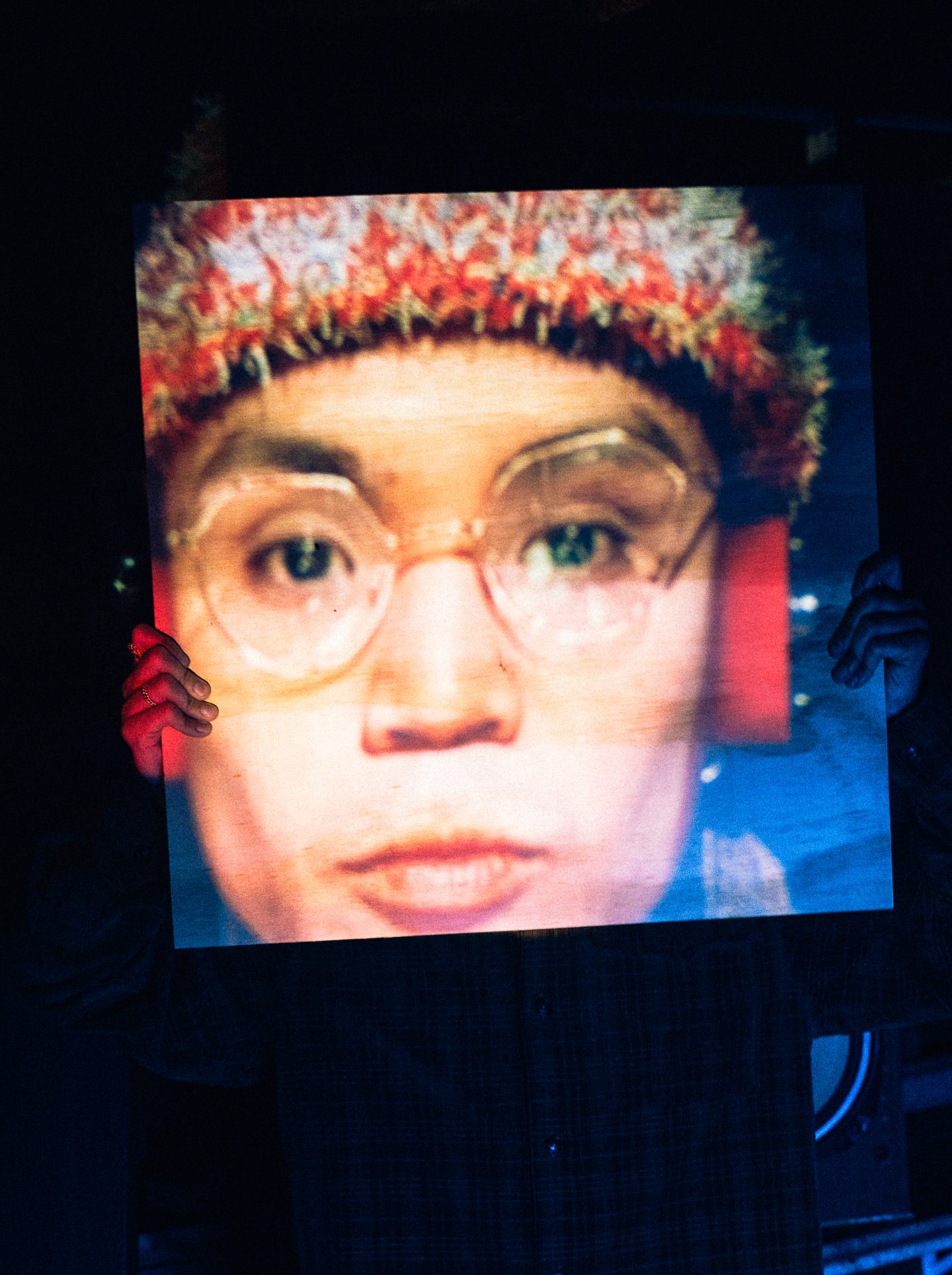
Across 15 tracks, Yeek explores desire, uncertain romance, and finding peace of mind overtop sleek, nocturnal pop that draws inspiration from early 2010s Tumblr. The era meant a lot to him, signaling a time when R&B shot into the future. It’s eons away from the hardcore music he used to play as a teenager down in South Florida, where he moved after spending the first decade of his life in New Jersey. Back then, he longed to feel like he was still living in a city and drifted toward mischief. Often that meant running around with his friends and tagging buildings (the moniker that he uses to this day was his signature).
He was also constantly at shows, which supplied their own torrents of brutal energy. While that sense of community is baked into the record, it is also Yeek’s attempt to make the type of R&B that was recalibrated by forward-thinkers, the kind with platinum albums. He salutes Frank Ocean’s nostalgia,ULTRA. (you can imagine Yeek admiring the orange BMW on the cover, a color that pops up in much of his music) and the Weeknd’s House of Balloons, two releases that defined the decade. “There was a whole era of R&B that felt alternative,” Yeek says. “You’re hearing Beach House samples [and] Coldplay samples. It was such a new thing to hear and [have] art be music. A lot of the record is inspired by that era and wanting to do my own twist on it in 2023.”
“ETA2,” a sequel to the 2021 original and the first preview of Future Reference, feels like the type of song that would be reblogged thousands of times back in the day. It’s an unimpeachable freeway banger, conjuring memories of muggy nights cruising around with time to kill. Besides acting as a full-circle moment for Yeek — Gino Vento, the vocalist of Thick As Blood from his Floridan hardcore days, appears in one of the song’s trailers — it also stars LA rap duo Paris Texas, who lend their mayhem to the woozy track. Like everything Yeek does, the pairing happened organically. They first came into each other’s worlds when Yeek’s best friend and collaborator Chris Cadaver showed him their unreleased music. After discovering that they had other mutuals, everything clicked into place. They skateboarded and “talked about a bunch of nerdy shit,” becoming friends before collaborators.
Accompanying “ETA2” is an equally thrilling music video helmed by Christian Long that brings the song full tilt. The street lights are flashing by quickly. The car is packed, and the laughter is immense. Someone breaks out a joint. There’s a couple locking lips in the backseat. As the video whirls from passenger to passenger — courtesy of Jeremy Belack and Long, who devised a rig that would spin the camera from a remote — you get the feeling that this could be anyone right now. Rowdy nights with your best friends are a timeless tradition, no matter where you are.
While Yeek’s music has largely been DIY, Future Reference wouldn’t exist in its current state without his community. It’s a change-up that calls back to those hardcore days, when everyone would lend a hand, though it wasn’t always that way. Before his 2021 record, Valencia, Yeek handled everything. From the producing and recording to the mixing and mastering, the work clearly elated and consumed him. On that album, though, he widened the door to collaboration, pulling in people like Jeff Ellis (Frank Ocean, Omar Apollo) to help him achieve a sound that captured the orange haze of the Florida coast. Now, Yeek is taking it a step further by inviting even more people into his world.
The record’s thick list of contributors is unlike any other release, marking the first time that he’s used instrumentalists. It’s the sound of evolution — a newfound sense of freedom. “That was the goal,” he laughs. “I didn’t realize how much pressure I was putting on myself by trying to do a lot of things on my own.” In fact, the extra hands fortify the project. There are strings, pianos, trumpets — the list goes on. Encouraging others to share their vision and offering them space to shine gave Yeek the breath that he needed. Cadaver helped, too, showing him the importance of creative directing and urging him to sit back while their friends helped enact their vision. “A lot of the ways I was used to doing things, I’m letting go of more and more,” Yeek admits. “When it comes to execution, there’s so many hands-on different parts of it now. I think that’s what’s gonna allow this album to reach its next level.”
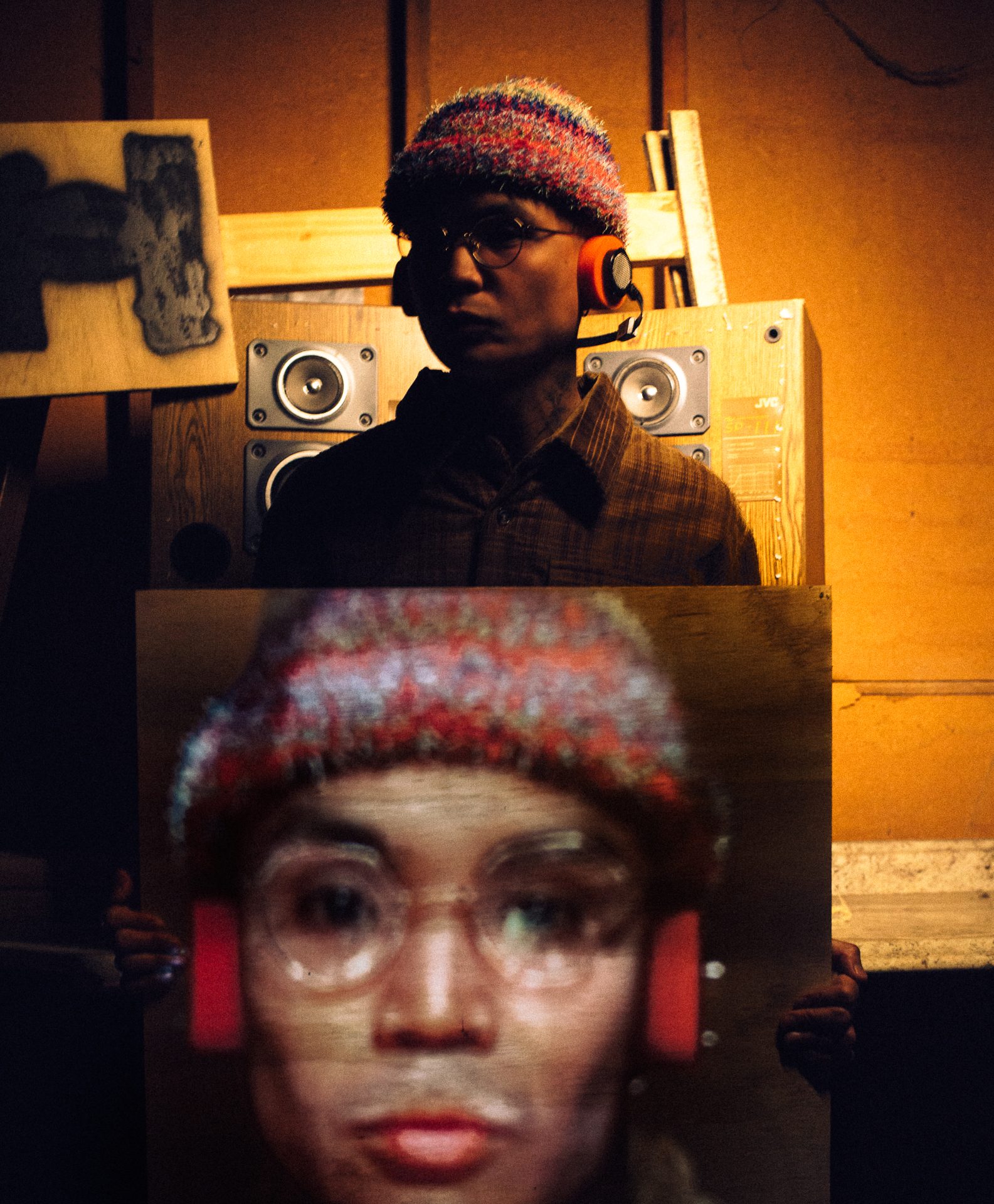
“Searching For Yourself,” for one, is entirely produced by Erik Bodin of Little Dragon. After creating a bunch of rough ideas together, Bodin showed him a beat that he was working out. Yeek liked it so much that they built the song from that. Once Raveena recorded her verse, he knew the cut would make it onto the record. “That was probably the first song I’ve ever used that’s not produced by me at all in an album,” he says. “It’s a special track, and it’s one of my favorite songs on the album.” Elsewhere, Bakar sounds just as fed up with a lover on “Care,” whose approach to skirting convention makes them kindred spirits.
“Last Night In Town” ends the album on the best note possible with a stirring piano comedown. You’d think it was only one person laying down those notes, but that’s the mirage. Yeek asked both George Moore and Zach Ezzy (who’s playing trumpet, by the way) to freestyle over the song while they were in the studio. Then, in a stroke of mad-scientist genius, he combined their parts. “I don’t think they knew that I was gonna mix it together,” he laughs. But that’s just Yeek — his ingenuity shines through in subtle, profound ways.
It’ll be a great day when his tender songs find their way onto daytime radio. Yeek has been paving a new path forward for pop music all along. In conversation, you can feel the breezy cool and thoughtfulness that drives his music as he wishes pop would sound “more wide-ranging than it is now.” It can be anything; the algorithm just needs to evolve. In the meantime, Yeek’s catalog remains a solace to those who let themselves find it and be soothed by it. These imaginative cuts are reminders of what’s possible when artists blur the lines, dare to kick back in the intersection, and let possibility roam. “When you’re able to do your own thing and have your own mind and freely express yourself, that shows people who look up to you what they might want for themselves, or you might inspire ’em,” he says. There’s always something — an idea to chase, a friend to call, a higher level to unlock. Whatever happens, the future belongs to Yeek.






